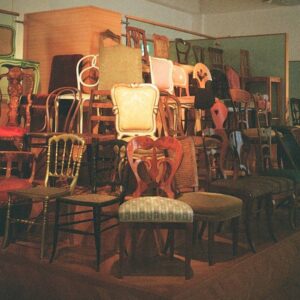Bridgerton fans’ guide to Regency-era lingo

Beau, blade and bouncer: These are the need to know Regency-era terms before the hit Netflix period drama returns to screens.
The team at Busuu, the language-learning app, has travelled back in time to reveal some popular nineteenth-century words that viewers may be able to identify in the new series of Bridgerton.
The first season of the show was a global success and sparked interest in the Regency era in Britain – as it was given a racy revival.
And with the second season on the horizon fans have been given a list of 1800’s lingo to be on the lookout for to help immerse themselves within this fascinating time period.
A spokesperson for Busuu said: “Period dramas are not just entertaining – they provide an interesting insight into history, especially when it comes to the language of the past.
“Regency-era dramas like Bridgerton are filled with old terms that English speakers might struggle to grasp today.
For example, whilst ‘bouncer’ in modern-day English refers to a type of security guard, in Regency-era English it means a lie.”
Here is Busuu’s list of Regency words to look out for:
Beau: Similar to a dandy – a rich, fashionable man.
Bouncer: Used to describe a barefaced lie or someone who is a liar.
Blade: A dashing man. Implies youth and perhaps immaturity.
Chit: A young woman who is arrogant and impertinent.
Claptrap: First used in the 1700s, claptrap is absurd or nonsensical talk thought to be implemented to elicit a response.
Dudgeon: A feeling of offence or deep resentment.
Hot flannel: A drink primarily made to keep you warm in the winter. Usually it consists of beer, gin, eggs, sugar and nutmeg.
Mawkish: Excessively and objectionably sentimental; sickening or tasteless.
Merry Andrew: A buffoon, fool or a joker.
Sennight: A week. Shortened from “the space of seven nights and days”.
Shift: A white, short-sleeved chemise, a precursor to the slip. Provided a barrier between a woman’s body and her outer layers of clothing.
Spencer: A woollen outer tailcoat without the tails. This was originally named after George Spencer, who is said to have had a tailcoat adapted after its tails were burned by coals from a fire.
Swell: Wealthy, elegant person; fashionably dressed or equipped, from the notion of “puffed-up, pompous” behaviour.
Under the hatches: Derived from being below deck on a ship. Someone who is broke or in debt would be “under the hatches”.
Whippersnapper: Someone who is young, inexperienced, and possibly overconfident. Likely derived from whipsnapper, a person who had nothing better to do than hanging about snapping a whip..
Yest: An abbreviation of yesterday.
Yoked: Simply to be married.




